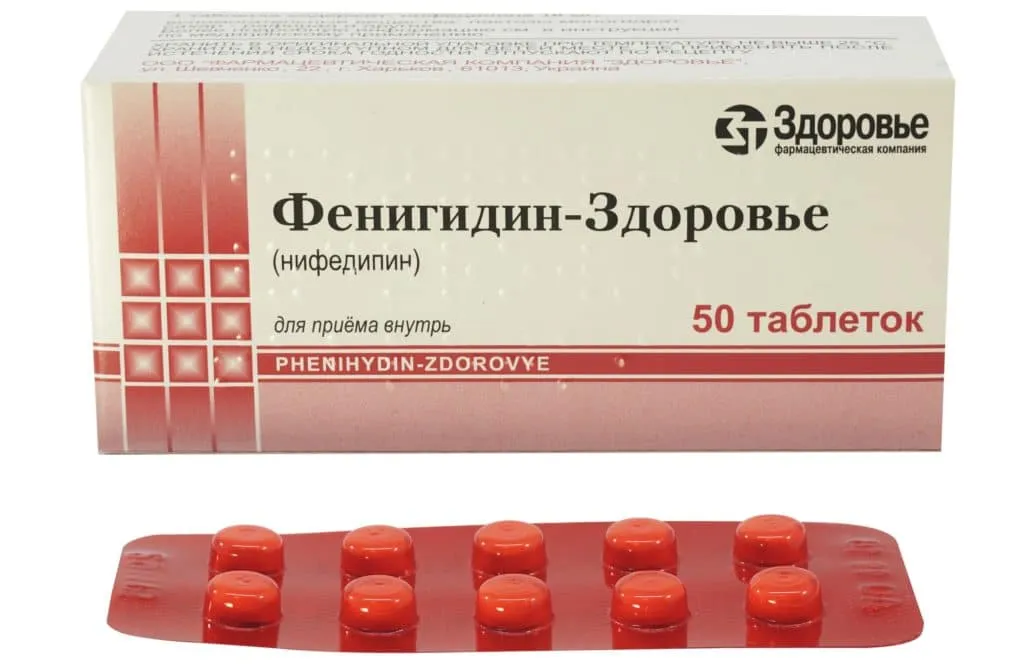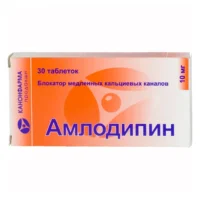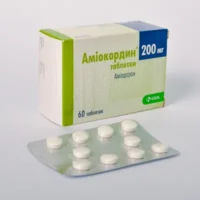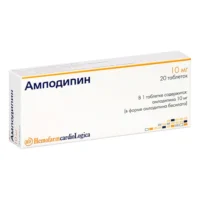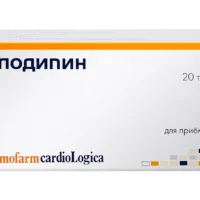Description
Fenigydin (Nifedipine) Tablets 0.01 №50
Composition
Active ingredient: Each tablet contains Nifedipine 0.01mg.
Mechanism of Action
Nifedipine, a calcium channel blocker, acts by inhibiting the influx of calcium ions through L-type calcium channels in cardiac and smooth muscle cell membranes. This leads to vasodilation, decreased peripheral vascular resistance, and ultimately, a reduction in blood pressure.
Pharmacological Properties
Nifedipine’s vasodilatory effect results in improved blood flow, reduced cardiac workload, and decreased blood pressure. It is effective in managing hypertension and chronic stable angina.
Indications for Use
Indicated for: Management of hypertension and chronic stable angina.
Contraindications
Contraindications: Avoid use in patients with known hypersensitivity to nifedipine.
Side Effects
Common side effects may include dizziness, flushing, headache, and peripheral edema. If you experience any severe side effects, contact your healthcare provider immediately.
Usage Instructions
Take one Fenigydin tablet orally once daily as directed by your healthcare provider. Swallow the tablet whole with a glass of water.
Benefits Compared to Analogues
Fenigydin tablets offer effective management of hypertension and angina with a well-tolerated profile and proven clinical efficacy compared to other calcium channel blockers.
Suitable Patient Groups
Fenigydin can be used in adult patients for the management of hypertension and chronic stable angina. Dosage adjustments may be necessary for elderly patients based on individual health conditions.
Storage and Shelf Life
Store Fenigydin tablets in a cool, dry place away from direct sunlight. Check the expiration date on the packaging and do not use expired medication.
Packaging Description
Fenigydin tablets are supplied in a pack containing 50 tablets, each tablet individually sealed for protection.
Clinical Evidence and Proven Effectiveness
Nifedipine has been extensively studied and proven effective in lowering blood pressure and relieving angina symptoms. Clinical trials have demonstrated its efficacy and safety profile in the management of hypertension and angina.

